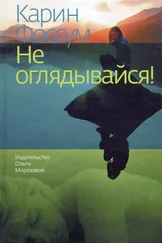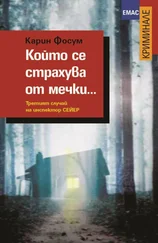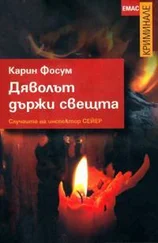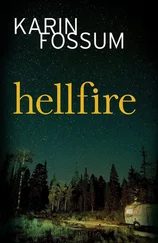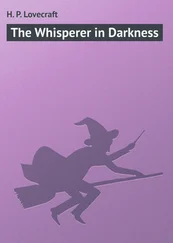The entrance to the pub was on the corner of one of the town’s beautiful old streets, and they could hear the noise from some way off, the usual hum of voices that rose and fell and sometimes erupted in a roar. Ragna had a sudden urge to turn. Gunnhild felt her arm twitch with reluctance, and tightened her hold.
‘There might not be a football match tonight,’ she said optimistically.
‘There’s always a football match,’ Ragna whispered. ‘You can hear there’s a football match on. Don’t play the fool.’
‘They only last ninety minutes. I’ll sit beside you,’ Gunnhild promised. ‘And there’s no obligation to say anything anyway, it’s not as if you have to talk non-stop, there’s enough people with big mouths in the pub on a Saturday night. You can look and listen, think of it as an experience, a memory to take with you. I tell you, there’s a few of us who could do with keeping our mouths shut more.’
‘But you’ll never know my thoughts,’ Ragna whispered. They both laughed.
And they really were given a quiet corner.
At the back of the pub, with two high-backed benches that faced each other to create a booth, and a coarse wooden table with scars and notches, and carved letters that were still legible, an A and an R and a K, and even ‘I love you’. No attempt had been made to sand down the surface and give it a new varnish. Ragna sat on the inside, next to the wall. From there she could look out into the room, at the big screen, which was showing a match, just as she had predicted, red and yellow strips against the neon green of the grass with its white, chalked lines. Every time one of the teams scored, a jubilant roar from the other customers broke over them like a wave. They did not play any music when the match was on, and she managed better than she had feared, the high-backed benches acting as a kind of sound barrier. It was just the four of them, close together. Lars and Gunnhild, Audun and herself, their faces soft in the candlelight. The low light and warmth meant that she soon relaxed. She leaned forward, then back, rested, looked at the others one by one, followed the conversation, watched them — just as they watched her, making sure she was all right, because she needed them more than they needed her. They know me, she realised. They listen and read my lips, wait patiently while I shape the words, nod when they’ve understood, ask me to repeat it when they haven’t, like I’m someone important. And the fish was good, hot and white inside the crispy golden shell, with thick, home-made tartar sauce and fat chips with salt. She ate greedily until she was full, and her mouth was greasy. She washed it all down with cold beer. Not bad, she thought, we’ve never sat like this before.
Gunnhild had given Lars a printed T-shirt. She had ordered it online; it had a picture on the front of a man on a huge forklift truck, and underneath it said in bold letters: ‘LARS IS THE BEST’. Audun sat there clutching a white envelope, as though he did not want to give it away, but eventually he pushed it over the table to Lars. It was a gift voucher for Paul’s Tattoo, where he could now decorate himself however he wished. And they had plenty of suggestions.
Audun added quietly that he could also choose a piercing, if he preferred that.
‘A ring in your nose,’ Ragna whispered, teasing him. ‘You’re such a bull.’
Lars promised he would go to Paul’s Tattoo. He would think carefully about what kind of statement he wanted to make, as it would be for life. Gunnhild told them about a documentary she once saw, about people living with HIV in Los Angeles. One woman had a big tattoo across her chest: ‘I AM HIV POSITIVE’. That way, everyone knew without her having to stammer over the truth.
They raised their glasses.
Lars opened the book from Ragna last, and read out some of the sayings and quotes in a theatrical voice. ‘“It is hardest at night, said the blind man, because then it is so dark.”’
Ragna held the beer tankard with both hands. Took a sip every now and then, laughed when the others laughed, absorbed everything. She studied the other people in the pub, wondered what kind of houses they had and what was waiting for them at home. Yes, it was hardest at night. You could never be sure of anything in the dark, your hearing and smell took over, but most of all your fear and treacherous imagination. Regardless of whether you were blind or not.
‘“He who speaks ill of others will swallow his own tongue,”’ Lars quoted. ‘Do you speak ill, Ragna?’
He winked at her across the table.
‘But wait,’ he said. ‘You can say whatever you like, because no one will hear you anyway.’
She tried to think of this as cheeky and amusing, as she usually did when Lars teased her. He was the only one who dared state the obvious. But a bell was ringing somewhere, maybe in her head, or in one of the dark corners of the pub, which reminded her of something else.
For a while she said nothing, sat and looked at the walls, which were covered in old weapons. They looked real — they might even have been used in a war, or two. Maybe there were traces of blood on the woodwork and rusty metal. Had someone really used that sword, that knife, that axe? she wondered. Had heads rolled and limbs been severed? There was an old axe hanging on the wall not far from the booth where they were sitting, it was a terrifying weapon. The handle was longer than usual and the blade was double-edged. She thought it might be an execution axe. She could happily have kept one of those under her bed. But then, she would probably not be able to lift it. How much strength would it take to separate a head from its body, she wondered, with all the bones and the muscles in the neck? A lot, no doubt. In addition to will and determination.
She realised the others had forgotten her. She had been quiet for a few minutes, lost in her own thoughts. They had forgotten her because she had not said anything, had not looked at them with pleading eyes, look at me, listen to me! But as the noise level had increased, it would not be possible to hear her anyway. The match was over, someone had put the music back on, and people were starting to get drunk, so they were screaming and yelling. She had guessed it would end like this. She knew that she would not be able to sit there much longer, and she dreaded the moment when she had to raise a hand and say I think I’m going to go home now. Most of all, she dreaded the guilt in their eyes because they had forgotten her. It was not as if they owed her anything. It would perhaps have been easier to be in a wheelchair, she thought, then they would all squabble about who was going to push her. There was something honourable about pushing a wheelchair, and all you needed was a bit of muscle.
Gunnhild followed her out onto the street, where they huddled together in the snow and waited for a taxi.
‘Well, well,’ Gunnhild said after a while, ‘that’s life. It always gets noisy later on in the evening, you know what it’s like when people drink. Did you know that alcohol affects your hearing as well?’
She looked at Ragna. The flames from the lanterns by the door cast a flickering light over her face.
‘But you had a good time, didn’t you? A good memory to take home with you. And it’s always nice to get home when you’ve been out. Whether someone’s waiting there or not.’
The corner of her mouth twitched, and her eyes drifted as though she yearned for something far away, something unobtainable, something that was lost. It occurred to Ragna that she had always assumed that Gunnhild’s life was perfect, that she wanted for nothing and never felt different, or left out. That what waited for her at home was wonderful. But what did she actually know about Gunnhild? She only knew the side she saw in the shop, the effective and energetic Gunnhild. Now she was watching out for a car in the dark. And even though they had just called for a taxi and it was probably still some way off, she seemed impatient. The noise from inside was too distant to lure them, but the odd wave of laughter did ripple out to the pavement, particularly when the doors opened and someone came out for a smoke. Ragna squeezed Gunnhild’s arm, leaned in towards her.
Читать дальше


